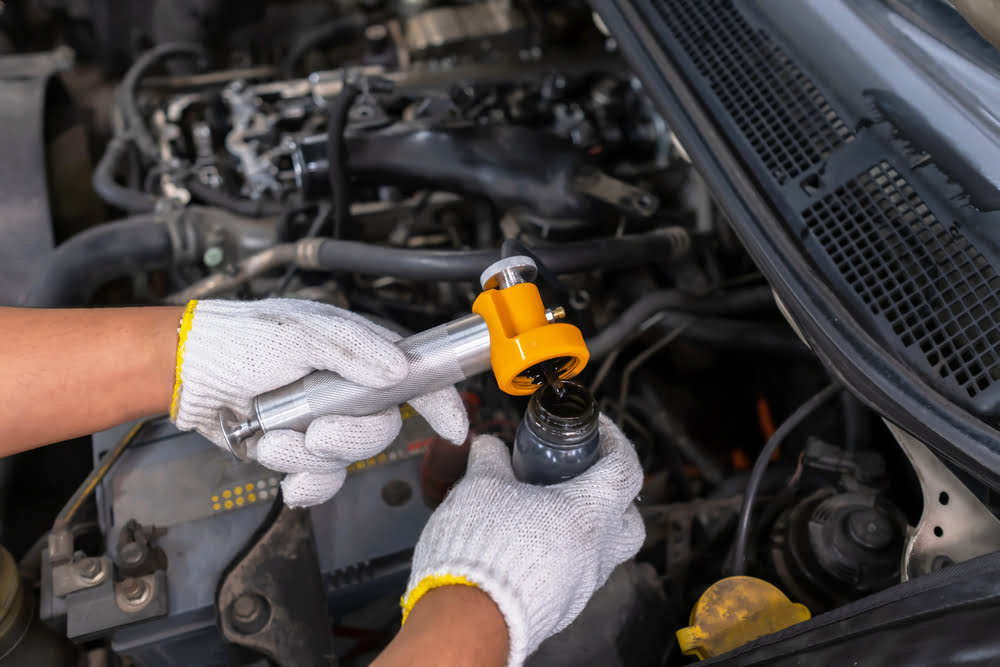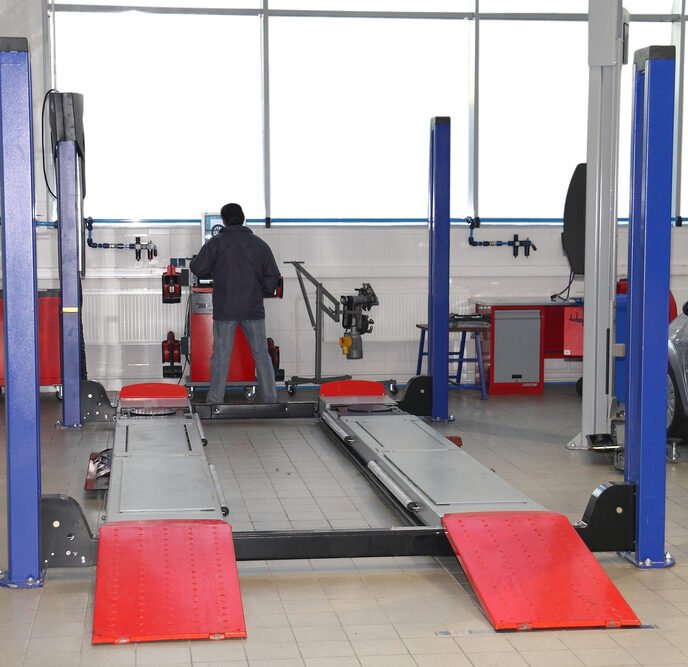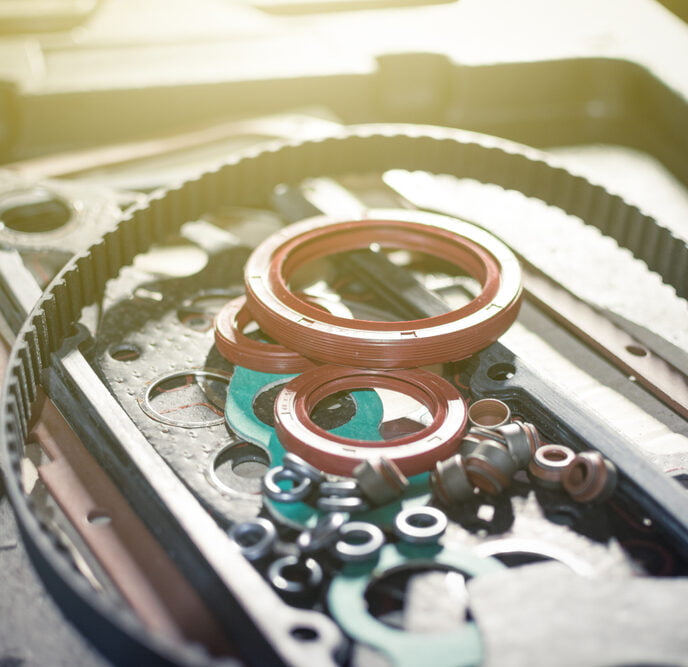Benefits of Preventive Maintenance on Your Lubrication Systems

Direct contact between two metallic surfaces causes friction, producing heat. These moving parts sustain increased wear and tear as a result. When a small layer of lubricant separates them, the moving parts do not make contact with each other, reducing the amount of wear and tear. While lubricants can be solids, liquids, or gasses, liquid lubricants are used for engine lubrication systems.
While most mechanics know the importance of proper lubrication, many do not have a preventative maintenance plan to protect against mechanical failures or equipment damage.
Why Lubricating Systems Preventive Maintenance is Important
If you don’t have a proper preventative maintenance plan for your lubricating systems, chances are you’ll deal with equipment failures, roller bearing damage, bearing failures, or mechanical failures. A regular oil analysis program keeps your equipment in tip-top shape and avoids potential component failures.
For example, a consistent oil analysis program can diagnose numerous issues, such as coolant or fuel leaks, and determine additive levels. In addition, the data that you uncover from oil analysis helps you eliminate future lubrication issues.
Lubricating System Maintenance: What To Check For
Now that you know the importance of performing preventative maintenance on your lubricating system, you must understand what things to check. First, it’s crucial to store lubricants in a properly sealed container to prevent potential clogs in the system. Also, only recommended lubricants should be used, so avoid those with additives, as they can clog your system.
A solid preventative maintenance program includes the following items:
- Ensure you clean the lubrication reservoir occasionally but avoid using cotton rags.
- Confirm that the suction filter is replaced annually while the screens are cleaned annually.
- Empty and clean the strainer often.
- Replace the pressure filter annually.
- Scan all of your flexible hoses for holes, cracks, or breakdowns.
- Inspect any tubing or pipes for breaks or flattening.
- Review all the connection points for leaks and tighten connections if applicable.
- Monitor the system for unusual increases or drops in pressure.
Even after performing all of the above items, conducting an oil analysis on your equipment is a good idea. The condition of the oil is a reflection of how well the machine is working and functioning. And without that analysis, you may think that your equipment is efficient when there’s something significantly wrong.
Benefits of Oil Analysis on Your Lubrication System

Having a preventative maintenance schedule for your lubrication system and performing oil analysis gives you the necessary insights into the operation of your machines. Without this analysis, you may assume your equipment is efficient and running smoothly. The benefits of oil analysis on your lubrication system are included below:
A Detailed Explanation of Your System’s Performance
Instead of leaving your equipment to chance, oil analysis can provide a comprehensive breakdown of your system’s performance. This breakdown can detect specific contaminants and show what problems may occur from those impurities.
Unfortunately, some contaminants can cause severe issues, and without oil analysis, you wouldn’t know about the problems until it’s too late. For example, iron and aluminum can show cylinder or piston damage. And an antifreeze or water leak can strain the whole machine trying to push the thickened oil. If there’s water in the analysis, you are likely to have broken seals, or the equipment’s temperature is less than optimal.
Discover Problems Before They Happen
Oil analysis can save you time and money in the long run because it discovers problems before they happen. This comprehensive report of the lubricant in your equipment can indicate minor issues before they become significant.
For example, you can learn about specific types of wear and tear through oil analysis and any problems with the filtration system. If you have improper filtration, it can lead to costly repairs in the future.
Less Downtime and Fewer Extensive Repairs
Any minor issues will likely go unnoticed if you don’t perform preventative maintenance on your machines. But unfortunately, those minor issues often become massive over time, requiring extensive repairs. Not only do those repairs cost money, but they also cause downtime for your business.
Regular oil analysis can detect internal parts breaking down with high metal levels. In addition, the analysis can find potential cross-contamination with additive levels, particle counts, or even viscosity.
This regularly scheduled testing provides critical insights into the efficacy of your machines. These insights allow you to fix minor issues before they become extensive issues.
You can identify problems sooner and promptly and effectively address problem areas by routinely analyzing the lubricants in your machines. This ability will save the need for expensive repairs and unanticipated downtime.
The Extended Life of Your Equipment
Just like with anything, routine and proper maintenance increase your equipment’s chance of a long, useful life. Not only can oil analysis prevent extensive repairs, repair bills, and downtime, but it can keep your equipment running smoothly for an extended period.
And, when you have more efficient and better-running machinery, it’s less likely to need significant repairs over its lifetime. In addition, you likely won’t need to replace components quite as often as with less efficient machines.
Save Money
If oil analysis can help you avoid significant machine issues and long periods of downtime while extending the equipment’s life, you will inevitably save money.
This type of analysis is the easiest way to monitor the efficiency of your equipment. In addition, a consistent analysis program can reduce risk, uncertainty, and reactive work. Finally, because this program is used for predictive maintenance, it saves you money by preventing significant damage, reducing downtime, and decreasing the need for unplanned repairs. An oil analysis program increases production, efficiency, uptime, and equipment reliability.
Every mechanic needs an automotive repair parts partner, whether you’re a quick lube shop, brake shop, or muffler repair center. So let SVI be your partner! With over forty years as the premier supplier of repair parts, we are experts in what we do!


